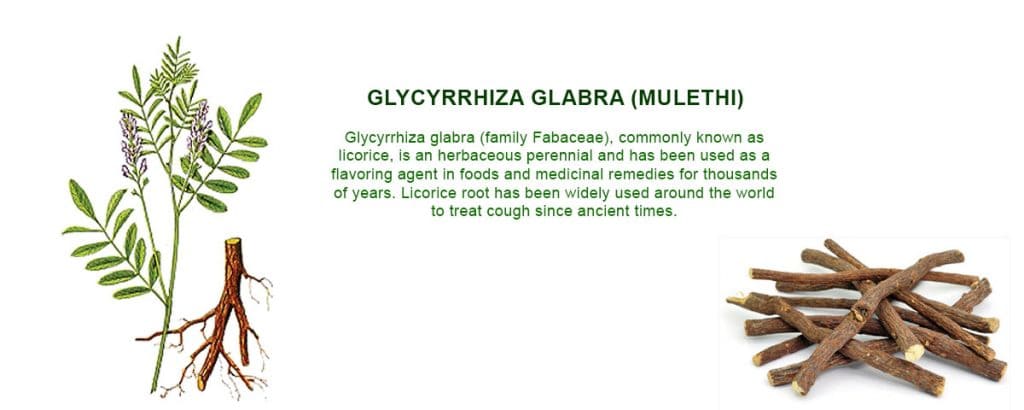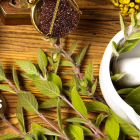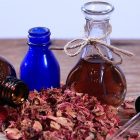Glycyrrhiza glabra (family Fabaceae), commonly known as licorice, is an herbaceous perennial and has been used as a flavoring agent in foods and medicinal remedies for thousands of years. Licorice root has been widely used around the world to treat cough since ancient times. It contains active compounds, including glycyrrhizin, glycyrrhetinic acid, flavonoids, isoflavonoids, and chalcones. Glycyrrhizin and glycyrrhetinic acid are considered to be the main active components and are potent inhibitors of cortisol metabolism, due to their steroid-like structures. The root of this plant has been used for cough, colds, asthma, and COPD
Uses
Itchy and inflamed skin (eczema). There is some evidence that applying licorice to the skin can improve symptoms of eczema. Applying a gel containing licorice three times daily for 2 weeks seems to reduce redness, swelling, and itching.
Heartburn (dyspepsia) Research suggests that taking two specific combination products containing licorice root (Iberogast, Steigerwald Arzneimittelwerk GmbH; STW-5-S, Steigerwald Arzneimittelwerk GmbH) seems to improve symptoms of heartburn.
Recovery after surgery Research suggests that sucking on a single lozenge containing licorice beginning 30 minutes before having a tube inserted through the mouth into the trachea reduces cough following surgery by about 50%. Also, gargling with a licorice fluid before intubation reduces complications when the breathing tube is removed.
Side Effects & Safety
Licorice is LIKELY SAFE for most people when taken by mouth in amounts found in foods. Licorice is POSSIBLY SAFE when taken by mouth in larger amounts for medicinal purposes and when applied to the skin for a short amount of time. However, it is POSSIBLY UNSAFE when taken by mouth in large amounts for more than 4 weeks or in smaller amounts long-term. Consuming licorice daily for several weeks or longer can cause severe side effects including high blood pressure, low potassium levels, weakness, paralysis, and occasionally brain damage in otherwise healthy people. In people who eat a lot of salt or have heart disease, kidney disease, or high blood pressure, as little as 5 grams per day can cause these problems.



